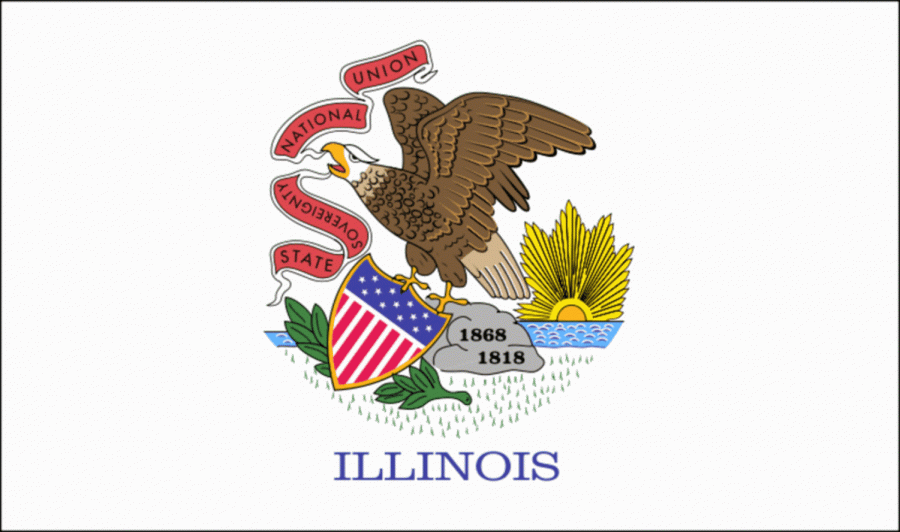Should IUDs be Provided for Free by the State of Illinois?
In Illinois, the cost of an IUD, which is a contraceptive method for females, ranges from $0-$1,300 depending on how much aid a person obtains from their healthcare. Maybe in the future, paying for IUDs could be a thing of the past as the discussion over whether or not IUDs should be free for its citizens in Illinois may ensue. What would be the Pros, and what would be the Cons of providing these devices for free?
September 24, 2020
Following Ruth Bader Ginsburg’s death, discussion has ensued about a potential conservative appointment and what changes may result to current Supreme Court rulings such as Roe v. Wade, the landmark case that currently protects the right to access an abortion if so desired. Some have begun looking to state regulations for potential solutions and additions. One lesser known option is to provide cost-free IUDs to residents. IUDs are tiny plastic devices shaped like a “T” that are inserted into a woman’s uterus. It prevents the fertilization of the egg by serving as a blockade. According to Planned Parenthood, IUDs are “99.9% effective [and are] actually the most effective way to prevent pregnancy after sex”.
Pros:
- In 2009, Colorado was provided a grant from Warren Buffet and his family to last all the way through 2016. According to The Colorado Sun, The grant allowed for ‘[women] and teens [to receive] 43,714 free IUDs”. Although the grant ended in 2016, Colorado was able to “[maintain] the program through state and federal funds, as well as the expansion of Medicaid through the Affordable Care Act”, which caused a “10% drop in the abortion rate… from 2014 to 2017”.
- An IUD, prevents the fertilization of the egg, meaning no embryo is created. This eliminates moral issues for some.
- IUDs last for many years, and Planned Parenthood states “you’re protected against pregnancy for 3 to 12 years, depending on what kind [of IUD] you get.” The best part of an IUD is that it is able to be taken out at any given point in time, and once removed, the chance of becoming pregnant once again is accessible. This causes a drop in abortions since the risk of getting pregnant is eliminated.
- $1.03 trillion dollars are given to those on welfare yearly, and Illinois falls amongst the top five states with the most people on welfare at 1,780,778 Illinoisans, according to the World Population Review. An overwhelming majority of those on welfare are either single parents or families who are struggling to provide for their children. By providing free IUDs, this trend of individuals getting pregnant and bringing a child into the world that they can’t afford will slowly start to decrease as the IUD will prevent this type of situation from occurring. Although the IUD would have to be funded by taxpayer dollars, the cost of that versus the overall cost towards welfare is nominal. In turn, it could allow for resources to be diverted for other pressing needs.
Cons:
- While IUDs protect against pregnancy, they cannot protect against the risk of obtaining an STI or STD. According to CDC.gov, sexually transmitted diseases kill “more than 1000 women” to die due to an STD each year. It could be more beneficial to provide condoms for men for free rather than IUDs for females for free, as a condoms “latex exterior reduces the risk of STD transmission” as well as eliminates the chance of pregnancy due to being a barrier.
- The concept of an IUD marks the same level of impermissibility as an abortion to some religious groups, specifically Roman Catholics. According to New York Times, this device is deemed as an “abortifacient” due to its job of preventing pregnancy “after a man’s sperm has fertilized a woman’s egg,” which goes against Catholic ideology that “life begins the moment an egg is fertilized, and that if a contraceptive has the potential to prevent the implantation of a fertilized egg in the uterus, it is aborting a life”. By providing free IUDs, the state of Illinois would be forcing Roman Catholics to pay taxes for a cause that they oppose.
- In order to provide free IUDs in the state of Illinois, taxpayers would have to fund this venture. Although the savings would be significant over welfare, there would still be a cost.
For millions of people across the United States, the appointment of a new Supreme Court justice has become a waiting game. Will President Trump be able to appoint a new conservative judge onto the Court? Will Roe v. Wade be overturned? Even though Roe v. Wade is a national case, it is now up to individual States to decide the importance of providing free contraceptive methods.



Abby MMS • Sep 27, 2020 at 4:23 pm
Love the idea of the pro/con format